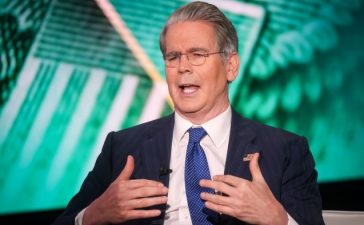Stay informed with free updates
Simply sign up to the UK house prices myFT Digest — delivered directly to your inbox.
UK house prices rose at their fastest annual pace for two years in September, as falling mortgage rates boosted the property market.
The average property price rose by an annual rate of 3.2 per cent, up from 2.4 per cent in August and the fastest rate since November 2022, according to new figures from mortgage lender Nationwide.
Economists polled by Reuters had expected an increase of 2.7 per cent.
On a monthly basis, the rise was 0.7 per cent, also faster than expected. The UK’s average house price is now £266,094, about 2 per cent below the all-time high recorded in the summer of 2022, according to Nationwide.
Robert Gardner, chief economist at Nationwide, said income growth had continued to outstrip the rise in house prices in recent months, while borrowing costs had edged lower amid expectations that the Bank of England would continue to cut interest rates.
“These trends have helped to improve affordability for prospective buyers and underpinned a modest increase in activity and house prices, though both remain subdued by historic standards,” he said.
House prices rose sharply during the pandemic, fuelled by record-low interest rates, but the property market was then hit by a jump in borrowing costs as the BoE sought to bring inflation down.
The property market is now recovering as lenders have reduced their mortgage rates following the BoE’s cut in interest rates by a quarter of a percentage point to 5 per cent in August.
UK mortgage approvals have risen more than expected to the highest level since August 2022, according to BoE data released on Monday. Net mortgage approvals climbed from an upwardly revised 62,500 in July to 64,900 in August.
Similarly, approvals for remortgaging increased from 25,200 to 27,200 over the same period, the BoE said, with a quoted 2-year mortgage rate for a 60 per cent loan to value dropping to 4.55 per cent in August from 4.8 per cent in July and 5 per cent in June.

Stephen Perkins, managing director at mortgage broker Yellow Brick Mortgages, said the UK property market went “supersonic” in September. “Powered by ongoing rate cuts from lenders and strong wage growth, the market is really starting to fire. I suspect the autumn Budget is also causing people to act now, as it has the potential to disrupt demand,” he added.
Regionally, Northern Ireland experienced the fastest growth in house prices, up 8.6 per cent year on year in the three months ending September, more than three times the national average of 2.5 per cent, Nationwide data showed.
Northern England continued to outperform southern England, with prices up 3.1 per cent year-on-year against 1.3 per cent in the south.
In London, where properties are the most expensive, averaging £525,000, price growth was below the national average at 2 per cent.
Nationwide also reported that terraced houses saw the biggest increase in prices over the past 12 months, up 3.5 per cent, while flats rose by 2.8 per cent.
Alex Kerr, economist at the consultancy Capital Economics, expects national house prices to “rise gradually” over the rest of this year, but said that price growth should “rebound more strongly next year as mortgage rates continue to fall”.
If the BoE cuts rates to 3 per cent in early 2026, “the resulting drop in mortgage rates should boost demand and house prices should gain more momentum next year”, he said.










